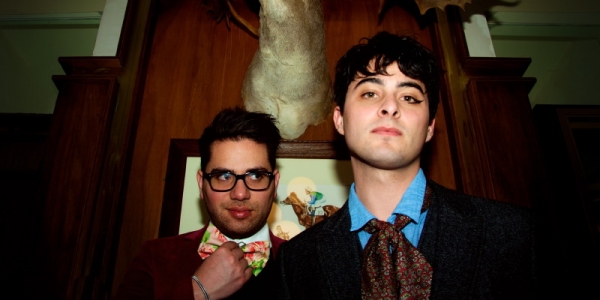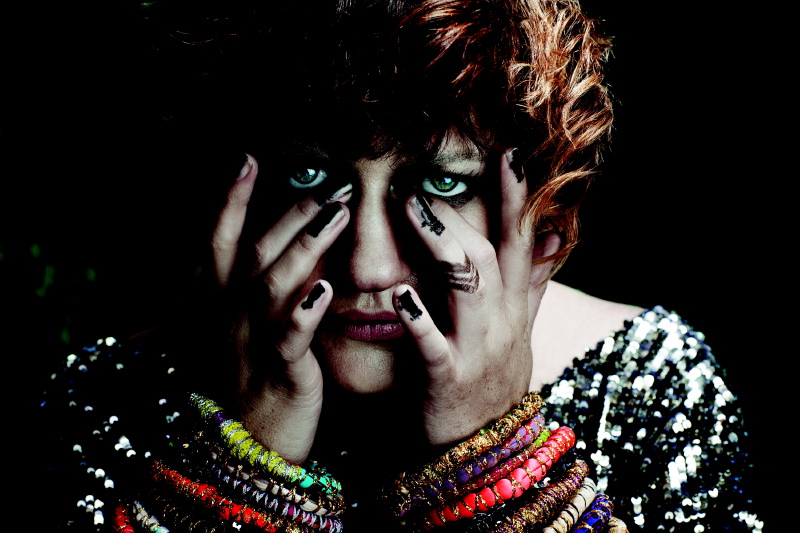“You hear buzz bands now, who get a feature album somewhere – like a big website – and then a week later, nobody’s listening to them,” he says. “I felt that with our first record, there were people who liked one or two songs, and that was it. Thinking back on our old songs, something like Time To Wander feels very forced to me now, like it was trying too hard to be a pop song.” Bacash sees Gypsy & The Cat as an album band, and their new album, The Late Blue, as a reflection of that… even if it scares some people away.
The Late Blue is a rambling, psychedelic album of shifting time signatures and trippy instrumental arrangements – its closest counterpart may well be MGMT’s Congratulations, which saw a similarly-lauded synth group shake off their pop past and get weird. When it comes to understanding the album, it probably helps to start with the influences that fed into it; Bacash began writing songs for the album while he was delving into the spaced-out art rock of bands like Pink Floyd, The Zombies and Spacemen 3. A life-long Beach Boys fan, he also found himself drawing on the loopier, weirder side of their music. “We were just trying to experiment, because pop music’s kind of a little bit boring at the moment,” he says. “I was listening to those guys, and a lot of Neutral Milk Hotel – I like Jeff Mangum, his lyrics are very honest.”
Live instrumentation is a big part of The Late Blue – something else that came from listening to so much ‘60s and ’70s music. “On the first record we didn’t have any live drums,” Bacash explains. “We played bass and acoustic and electric guitar, but it was predominantly synth and programmed drums, with those other live elements sprinkled through. The new album will sound to you like a full band because it is.” Bacash and production partner Lionel Tower recorded live drums, and tried to make them sound like they’d come from vintage records. “We were also playing around with song structures like those of The Zombies,” he says. “We like the idea of having three and four songs in one – it feels like a journey. There are a couple of songs on the record that feel like journey songs; they just keep moving, and while you know you’re in the same moment, the same song, things are obviously changing. We were trying to experiment with that.”
When I tell Bacash that I’ve been listening to the new album in preparation for our interview, he starts quizzing me for my reaction – what did I think? Was it weirder than I was expecting? I tell him honestly that I’m really enjoying it so far, even if it sounds so radically different from their first – which I loved at the time and still do. He feels that The Late Blue may be confronting to fans who know the band best for tracks like Time To Wander and Jona Vark, but he’s fine with the implications of that.
“Bloom and now Sorry are the first tracks that people have gotten to hear from the new album,” he says. “It’s funny, because they’re the two pop songs of the record, and they’re not even that poppy. They’re accessible, but that’s about it…and the rest of the record sounds nothing like them.
“We’ve gone independent now and started our own label,” he continues. “We’re trying to have a bit more control over the growth, as well as creative control. It’s kind of counter-intuitive when bands get too big too quick.” He brings up Gotye as an example of this phenomenon. “If I was him – and this will probably sound really stupid to some people – I would have tried to stop that song Somebody That I Used To Know dead in its tracks after it went #1 in a couple of countries. I would have tried to stop the momentum. When you get too big, there’s nowhere else to go from there…” I venture that, at a certain point, songs like that take on lives of their own, but Bacash disagrees. “When you’re touring a lot and doing lots of appearances on Jimmy Kimmel or whatever to promote that song, it’s still in your control. You’re trying to pump the tyres up as much as you can.”
Gypsy & The Cat are all set to hit the road to promote The Late Blue, with a tour that takes in Future Music Festival, a gathering they first played two years ago. “I loved playing Future,” he says. “We played the first year they’d started putting bands on – it was just a dance festival with DJs in the years before that. We played on the same stage as MGMT and Tame Impala and Mark Ronson, so it was great company to be in, great to meet those guys – MGMT and Tame Impala, especially, because our mixing engineer is their mixing engineer. The festival’s always rammed, people are always up for it, so yeah – it’s a really good festival!”
BY ALASDAIR DUNCAN







